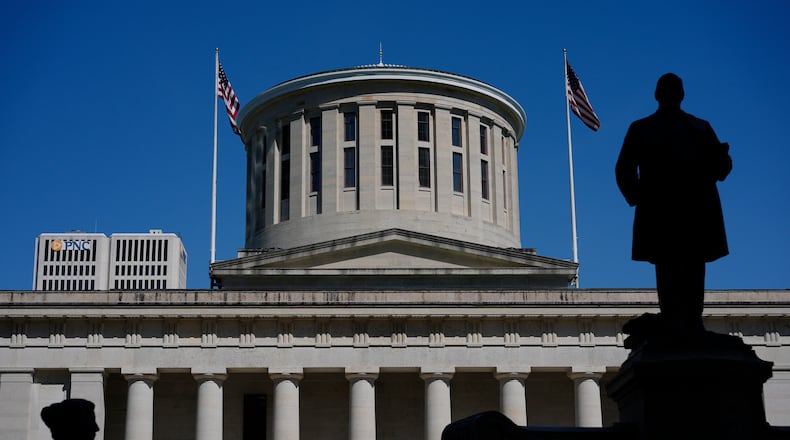Among the bill’s provisions, it would require voucher students in private schools to take the same state tests as students in public schools, would require the Ohio Department of Education and Workforce to create a report card for voucher-accepting private schools to make them more comparable to public schools, and ask the schools to account for voucher funds separately from other funds.
Ohio has two types of vouchers available to students without special needs who don’t live in Cleveland. EdChoice is open to families whose “home school” geographically is deemed as underperforming by the state. EdChoice Expansion is open to everyone based on household income.
Any Ohioan who makes up to 450% of the poverty line — $150,000 for a family of four — is eligible for a full EdChoice Expansion Scholarship. Ohio families who make more than that are eligible for at least 10% of the scholarship.
The scholarship amount for the 2023-2024 school year was $6,166 for grades K–8, and $8,408 for grades 9-12, per ODEW.
Proponents of House Bill 407 include public school advocates including Ohio’s two major teachers unions, the Buckeye Association of School Administrators, the Ohio Association of School Business Officials, and the Ohio School Boards Association.
Many of those organizations testified in support of the bill along similar lines: they want more accountability for private schools who now have more access to state money through larger voucher programs.
“Ohio taxpayers should be able to see and easily understand how public resources are being used to educate Ohio’s students and the result of that investment no matter the school setting,” said Nicole Piscitani, deputy director of legislative services for the Ohio School Boards Association.
Paul Imhoff, director of governmental relations for the Buckeye Association of School Administrators, Ohio’s school superintendents’ association, said the organization supports the many accountability measures in the bill, such as giving parents more information and more fiscal oversight. He noted some of the members of the association include career centers, STEM schools, schools that allow students from other districts to enroll, and district-sponsored charter schools.
“Clearly, we do not oppose school choice,” Imhoff said. “What we are in favor of is strong schools for children.”
Opponents of House Bill 407 — including the Ohio Christian Education Network, the Catholic Conference of Ohio and the Ohio arm of the Americans for Prosperity political group — have said the proposed regulations are too similar to what public schools are required to do, which defeats the purpose of school choice.
Advocates for funding different types of schools say that private schools and charter schools are more directly accountable to the families they serve than public schools because a private or charter school loses all of the funding supporting a child being there if the child leaves. In an Ohio public school, state funding leaves with the child, but the funding collected from locally approved property taxes still goes to the local schools.
Yitz Frank, the president of School Choice Ohio, noted that with the budget expansion of EdChoice last year came an additional requirement for private schools to calculate a “value added” measure, which accounts for how much the student learned since the start of the school year. Traditional public and charter schools are scored on “value added” on their report card.
Some opponents of the bill support parts of it. Aaron Churchill, Ohio research director at the Fordham Institute, said he supports the idea of having private schools take the same tests that public schools do, but said the accountability burden on private schools is something even public school advocates have fought in the past when it applied to their own districts.
Donovan O’Neil, state director for Americans for Prosperity, argued EdChoice-providing private schools are already accountable like public schools via their state charter and Ohio’s “operating standards.”
The bill has had three hearings in the Ohio House’s Primary and Secondary Education Committee, including testimony for and against, but has not been voted on yet by committee members.
Credit: Tom Gilliam
Credit: Tom Gilliam
About the Author



